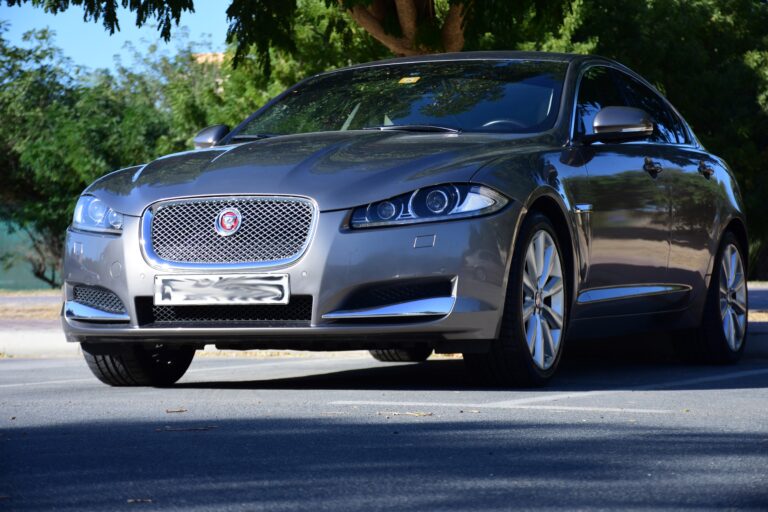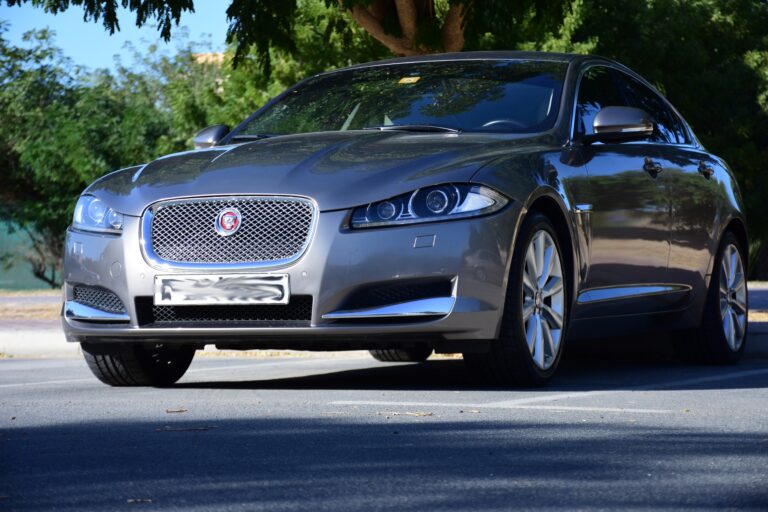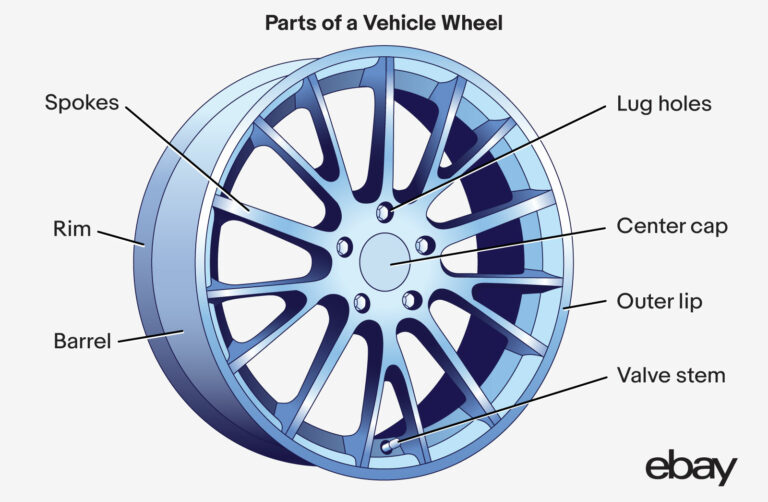V Car Brands: A Comprehensive Guide to Automotive Excellence
V Car Brands: A Comprehensive Guide to Automotive Excellence cars.truckstrend.com
Introduction: Defining the ‘V’ in Automotive Innovation
The automotive industry is a vast tapestry of brands, each with its unique heritage, design philosophy, and market presence. Among these, a fascinating subset emerges when we consider those distinguished by a specific letter at the start of their name. This article delves into the world of "V Car Brands" – a collective term we’ll use to refer to prominent automobile manufacturers whose names begin with the letter ‘V’. Far from being a mere alphabetical curiosity, these brands represent a diverse spectrum of automotive engineering, ranging from pioneers in safety and accessible global powerhouses to emerging electric vehicle contenders.
V Car Brands: A Comprehensive Guide to Automotive Excellence
Exploring V Car Brands offers a unique lens through which to understand the evolution of the automobile, the shifting tides of consumer preferences, and the relentless pursuit of innovation. From the meticulous German engineering of Volkswagen to the robust safety innovations of Volvo, the British practicality of Vauxhall, and the ambitious electric vision of VinFast, these brands collectively tell a compelling story of resilience, adaptation, and foresight in a rapidly changing world. This guide aims to provide a comprehensive overview, offering insights into their defining characteristics, market positions, and what sets them apart in the competitive automotive landscape.
The Titans of ‘V’: A Deep Dive into Key Brands
The letter ‘V’ heralds some of the most recognizable and influential names in the automotive world. Each brand brings a distinct set of values, design principles, and technological advancements to the table.
Volvo: The Epitome of Safety and Scandinavian Luxury
Founded in Sweden in 1927, Volvo has long been synonymous with safety. Its innovations, such as the three-point seatbelt (which they famously made open-source for all manufacturers), have saved countless lives globally. Beyond safety, Volvo has evolved into a purveyor of understated Scandinavian luxury, characterized by minimalist design, premium materials, and a strong focus on sustainability.
- Key Characteristics: Unparalleled safety features, sophisticated yet understated design, comfortable and ergonomic interiors, strong commitment to environmental responsibility (leading in electrification and sustainable materials).
- Market Position: Premium segment, competing with German luxury brands, appealing to discerning buyers who prioritize safety, comfort, and environmental consciousness.
- Innovation: Pioneering autonomous driving technologies, developing advanced driver-assistance systems (ADAS), and rapidly transitioning to an all-electric lineup.

Volkswagen: The People’s Car and Global Powerhouse
Volkswagen, meaning "people’s car" in German, was founded in 1937 with the aim of mass-producing affordable vehicles. From its iconic Beetle to the ubiquitous Golf and the popular Passat, VW has grown into one of the world’s largest automakers, encompassing a vast array of brands under its umbrella (though we focus on the core VW brand here). Known for robust German engineering, reliability, and a broad model range, Volkswagen offers vehicles for almost every segment.
- Key Characteristics: Reliable engineering, solid build quality, versatile model lineup (from compact cars to SUVs and commercial vehicles), strong resale value.
- Market Position: Mainstream volume segment, offering a balance of quality, technology, and affordability, with a strong presence globally across various markets.
- Innovation: Aggressively pursuing electrification with its ID. series, investing heavily in software development, and exploring new mobility solutions.

Vauxhall: The British Stalwart (and European Opel)

Vauxhall Motors, established in 1857, has a long and storied history in the United Kingdom. For many decades, it served as the British arm of General Motors and is now part of the Stellantis group. Vauxhall vehicles are largely rebadged Opel models (Opel being its European counterpart), offering practical, affordable, and well-equipped cars designed for the European market.
- Key Characteristics: Practicality, fuel efficiency, value for money, strong presence in the UK market, often among the best-selling cars.
- Market Position: Volume mainstream segment, appealing to budget-conscious buyers and families looking for reliable transport.
- Innovation: Embracing electrification with models like the Corsa-e and Mokka-e, focusing on connectivity and user-friendly technology.
VinFast: Vietnam’s Electric Challenger
A relatively new entrant, VinFast was founded in 2017 by Vietnam’s largest conglomerate, Vingroup. With an ambitious vision, VinFast quickly pivoted to focus entirely on electric vehicles (EVs) for global markets. They aim to establish themselves as a significant EV player, combining modern design with competitive pricing and an aggressive expansion strategy.
- Key Characteristics: All-electric lineup, modern design, rapid product development, competitive pricing strategy (often including battery subscription models), strong government backing.
- Market Position: Emerging EV market, aiming to challenge established EV manufacturers and attract buyers looking for new, technologically advanced electric options.
- Innovation: Focus on smart features, advanced battery technology, and establishing a robust global charging infrastructure.
Other Notable ‘V’ Brands (Brief Mentions)
- Venturi: A niche Monégasque manufacturer known for high-performance electric sports cars and its involvement in Formula E.
- Vector Motors: A defunct American supercar manufacturer from the 1980s and 90s, known for its radical, aerospace-inspired designs.
Beyond the Badge: Unique Selling Propositions and Innovation
Each V Car Brand, while sharing the common initial, distinguishes itself through unique propositions and a forward-looking approach to automotive development.
Safety & Sustainability (Volvo)
Volvo’s commitment to safety is legendary, but their recent focus on sustainability is equally impressive. They are not just electrifying their lineup but also meticulously scrutinizing their supply chain for ethical sourcing and reducing the carbon footprint of their manufacturing processes. Their interiors often feature recycled and bio-based materials, setting a benchmark for eco-conscious luxury.
Engineering & Accessibility (Volkswagen)
Volkswagen’s strength lies in its ability to deliver sophisticated engineering to a broad audience. Their MQB platform, for instance, underpins a vast array of vehicles, allowing for economies of scale while maintaining high quality and driving dynamics. Their pivot to electrification with the MEB platform demonstrates a similar scalable approach to EV production, aiming to make electric mobility accessible to the masses.
Practicality & Value (Vauxhall)
Vauxhall excels in understanding the everyday needs of its core market. Their vehicles are designed for practicality, offering good interior space, fuel efficiency, and a comfortable ride. The brand often provides competitive pricing and attractive financing options, making them a popular choice for first-time buyers and families seeking reliable and economical transportation.
Electrification & Agility (VinFast)
VinFast’s defining characteristic is its audacious leap into the EV market. Unlike legacy automakers burdened by internal combustion engine (ICE) infrastructure, VinFast started fresh, allowing for rapid iteration and a sole focus on electric mobility. Their agility in product development and aggressive market entry strategy are key differentiators, positioning them as a dynamic challenger in the EV race.
Technological Advancements and Future Outlook
Across all V Car Brands, the trend is clear: electrification, digitalization, and autonomous driving are paramount.
- Electrification: All major V brands are heavily investing in battery electric vehicles (BEVs) and plug-in hybrids (PHEVs), with ambitious targets for phasing out ICE vehicles.
- Connectivity: Modern V cars are increasingly connected, offering advanced infotainment systems, over-the-air (OTA) updates, and seamless smartphone integration.
- Autonomous Driving: While fully autonomous vehicles are still some way off, these brands are continuously enhancing their ADAS features, moving towards higher levels of automated driving capability.
Navigating the V-Verse: Choosing Your Ideal Car
Selecting a car from the V Car Brands involves careful consideration of your personal needs, budget, and priorities. Here’s a practical guide to help you make an informed decision:
1. Identifying Your Needs: Lifestyle, Budget, and Priorities
- Lifestyle: Are you a city dweller needing a compact car (e.g., VW Polo, Vauxhall Corsa)? A family requiring spaciousness and safety (e.g., Volvo XC90, VW Tiguan)? Or an eco-conscious individual looking for an EV (e.g., VinFast VF 8, VW ID.4)?
- Budget: Determine your total budget, including purchase price, insurance, maintenance, and fuel/charging costs. V Car Brands span a wide price range, from affordable compacts to premium luxury SUVs.
- Priorities: What matters most to you? Is it safety (Volvo)? Reliability and value (VW, Vauxhall)? Cutting-edge EV technology (VinFast)? Performance? Cargo space?
2. Researching and Comparing: Specifications, Reviews, Test Drives
- Online Research: Utilize manufacturer websites, independent automotive reviews (e.g., Edmunds, Car and Driver, Top Gear), and consumer forums. Pay attention to specifications like engine types, fuel efficiency/range, safety ratings (e.g., Euro NCAP, IIHS), and standard features.
- Comparison Tools: Use online comparison tools to directly pit models against each other based on features and specs.
- Test Drives: This is crucial. Drive several models that fit your criteria. Pay attention to comfort, driving dynamics, visibility, infotainment system usability, and overall feel. Try to replicate your typical driving conditions (city, highway).
3. Ownership Considerations: Maintenance, Resale Value, After-Sales Service
- Maintenance Costs: Research typical service intervals and costs for the models you’re considering. European brands generally have higher parts and labor costs than some Asian counterparts. Electric vehicles often have lower maintenance costs due to fewer moving parts.
- Resale Value: Check predicted resale values from sources like Kelley Blue Book or local market data. Brands with strong reputations for reliability often hold their value better.
- After-Sales Service: Investigate the dealer network in your area. Read reviews about service quality, parts availability, and customer support. A reliable and accessible service center is vital for a positive ownership experience.
Challenges and Opportunities in the V Car Landscape
The automotive industry is in a state of unprecedented transformation, presenting both significant challenges and immense opportunities for V Car Brands.
Global Competition & Market Shifts
The rise of new players (especially in EVs), the dominance of established giants, and the increasing fragmentation of consumer preferences mean V Car Brands must continuously innovate to stay relevant. Market shifts towards SUVs, crossovers, and now EVs, demand rapid adaptation in product portfolios.
Supply Chain Dynamics
Recent years have highlighted the fragility of global supply chains, particularly concerning semiconductors. V Car Brands, like all manufacturers, grapple with ensuring a steady supply of components to meet production targets and customer demand. This has led to increased focus on localized supply chains and vertical integration.
The Electrification Revolution
While an opportunity, the rapid shift to EVs also poses challenges:
- High Investment Costs: Developing new EV platforms, battery technology, and charging infrastructure requires massive capital expenditure.
- Battery Supply & Raw Materials: Securing a stable and ethical supply of critical raw materials for batteries (lithium, cobalt, nickel) is a growing concern.
- Consumer Adoption: Convincing consumers to switch from ICE to EV, addressing range anxiety, charging infrastructure availability, and initial purchase price remain hurdles.
Consumer Expectations & Customization
Modern consumers expect more than just a means of transport. They demand seamless digital integration, personalized experiences, advanced safety features, and a commitment to sustainability. V Car Brands must meet these evolving expectations through continuous software updates, personalized services, and ethical manufacturing practices.
V Car Brands: Estimated Price Guide
Please note: The prices listed below are estimated average starting prices in USD for base models and can vary significantly based on region, trim level, optional features, market conditions, and incentives. They are provided for general guidance only. "Complete information" on all prices is impossible due to constant market fluctuations and model variations.
| Brand | Representative Model Category | Representative Model Example | Estimated Price Range (USD – Base Model) | Key Feature / Focus Area |
|---|---|---|---|---|
| Volvo | Compact SUV / Sedan | XC40 / S60 | $37,000 – $55,000 | Safety, Scandinavian Design, Sustainability |
| Mid-Size SUV / Wagon | XC60 / V60 | $45,000 – $75,000 | Premium Comfort, Advanced Safety | |
| Large SUV / Sedan | XC90 / S90 | $57,000 – $85,000+ | Flagship Luxury, Family-Oriented Safety | |
| Volkswagen | Compact Hatchback / Sedan | Golf / Jetta | $24,000 – $35,000 | Practicality, German Engineering |
| Compact SUV / Crossover | Taos / Tiguan | $25,000 – $40,000 | Versatility, Everyday Usability | |
| Electric Vehicle (EV) | ID.4 | $40,000 – $55,000+ | Mass-Market EV, Sustainable Mobility | |
| Vauxhall | Small Hatchback | Corsa | £18,000 – £28,000 (UK Market) | Affordability, City Driving, Fuel Economy |
| Compact SUV / Crossover | Mokka / Crossland | £24,000 – £35,000 (UK Market) | Stylish Design, Urban Practicality | |
| Family Hatchback / Estate | Astra | £25,000 – £38,000 (UK Market) | Versatility, Family-Friendly | |
| VinFast | Electric SUV | VF 8 | $49,000 – $65,000+ | All-Electric, Modern Tech, Global Ambition |
| Larger Electric SUV | VF 9 | $60,000 – $80,000+ | Premium EV, Spacious Interior |
Note: Prices are estimates for new vehicles at the time of writing and do not include destination charges, taxes, or specific dealer markups. EV prices may also be subject to regional or national incentives.
Frequently Asked Questions (FAQ) about V Car Brands
Q1: What are the primary distinguishing features of Volvo cars?
A1: Volvo cars are primarily distinguished by their industry-leading safety features, elegant Scandinavian design, comfortable and ergonomic interiors, and a strong commitment to environmental sustainability, particularly through their rapid transition to electric vehicles.
Q2: Is Volkswagen considered a luxury brand?
A2: While Volkswagen owns several luxury brands (like Audi, Porsche, Bentley), the core Volkswagen brand itself is generally considered a mainstream, mass-market brand. It offers well-engineered vehicles with a premium feel for their price point but is not typically categorized as a luxury brand like BMW or Mercedes-Benz.
Q3: Are Vauxhall cars reliable?
A3: Vauxhall cars, being largely rebadged Opel models, generally offer good reliability and are known for being practical and economical. Their reliability ratings are typically on par with other mainstream European and Asian manufacturers. Regular maintenance is key to their longevity.
Q4: What is VinFast known for?
A4: VinFast is primarily known for being Vietnam’s first global automotive manufacturer and for its ambitious, rapid entry into the electric vehicle (EV) market. They are distinguished by their all-electric lineup, modern designs, and a unique battery subscription model in some markets.
Q5: Which V Car Brand is best for safety?
A5: Volvo is historically and currently the strongest V Car Brand for safety. Their entire brand identity is built around safety innovation, and they consistently achieve top safety ratings from organizations like Euro NCAP and IIHS.
Q6: Are V Car Brands expensive to maintain?
A6: Maintenance costs vary significantly among V Car Brands. Volvo, being a premium brand, typically has higher maintenance costs than Volkswagen or Vauxhall. VinFast, as a new EV brand, might have different cost structures related to EV-specific components and software, often with lower routine maintenance needs compared to ICE vehicles.
Q7: Do these brands offer electric vehicles?
A7: Yes, all major V Car Brands discussed (Volvo, Volkswagen, Vauxhall, and VinFast) are heavily invested in electric vehicles. VinFast is an all-electric brand, while Volvo, Volkswagen, and Vauxhall are rapidly expanding their EV and plug-in hybrid offerings as part of their future strategies.
Conclusion: The Enduring Legacy and Future of V Car Brands
The world of V Car Brands is a testament to the diversity and dynamism of the automotive industry. From Volvo’s unwavering dedication to safety and sustainability, Volkswagen’s mastery of accessible German engineering, Vauxhall’s commitment to British practicality, to VinFast’s bold leap into the electric future, these brands collectively offer a rich tapestry of choices for consumers worldwide.
They represent not just vehicles, but philosophies of design, engineering prowess, and visions for future mobility. As the industry continues its rapid evolution towards electrification, autonomy, and connectivity, V Car Brands are poised to play a crucial role. Their ability to innovate, adapt to changing market demands, and uphold their core values will define their enduring legacy and shape the automotive landscape for generations to come. Whether you prioritize safety, reliability, value, or cutting-edge electric technology, a V Car Brand likely offers a compelling solution tailored to your needs.
![]()





